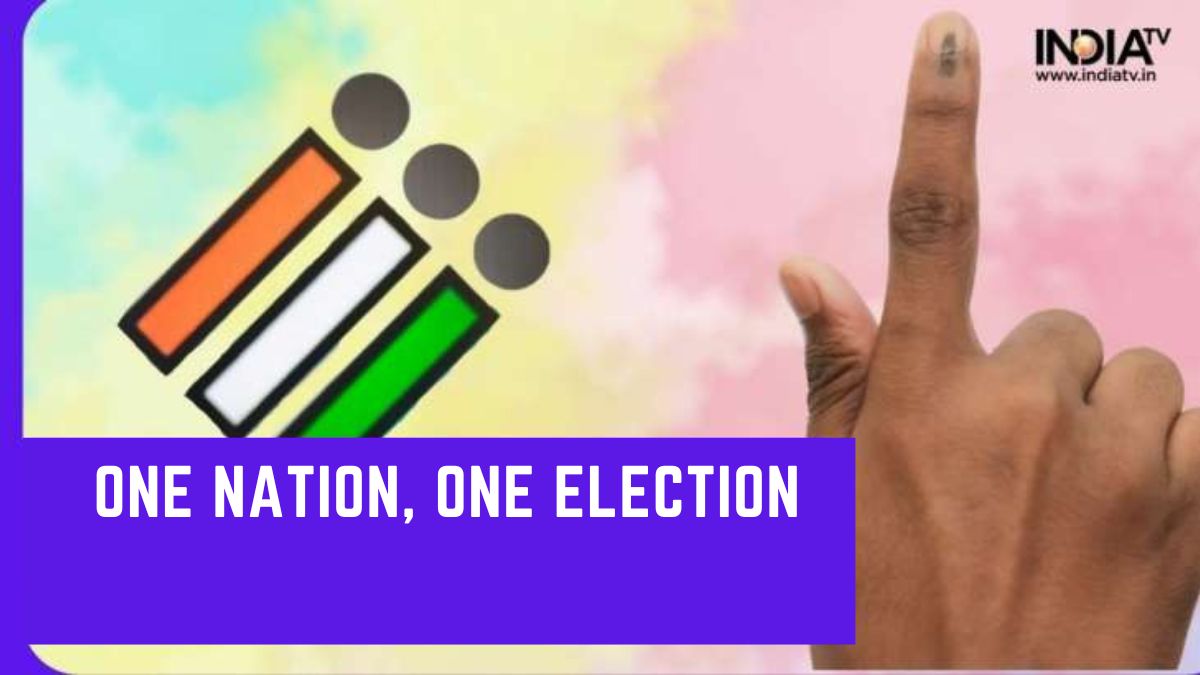'One Nation, One Election' is not new concept in India: Here's timeline and how it discontinued | EXPLAINED
Following the adoption of the Constitution in 1950, elections for the Lok Sabha and all state assemblies were held simultaneously every five years between 1951 to 1967.

The Union government has constituted a committee headed by former President Ram Nath Kovind to explore the possibility of 'One Nation, One Election' which envisages the holding of general election and state Assembly elections simultaneously. The committee is likely to explore the possibility of bringing legislation regarding it. A parliamentary standing committee, the Law Commission and Niti Ayog had earlier examined the 'One Nation, One Election' proposal and submitted reports on the subject.
Concept of 'One Nation, One Election' is not new
The government has decided to call a Special Session of Parliament from September 18-22 where it is speculated that the government could bring a bill for this proposal to take effect. If 'One Nation, One Election' does come into effect it could mean that elections for the Lok Sabha and state assemblies across India will be held simultaneously, with voting taking place at the same time. However, the concept of 'One Nation, One Election' is not new in India.
Elections were held simultaneously from 1951 to 67
Following the adoption of the Constitution in 1950, elections for the Lok Sabha and all state assemblies were held simultaneously every five years between 1951 to 1967. The polls were held simultaneously for the Centre and states in 1952, 1957, 1962 and 1967. The process came to an end as new states began to form and some old ones were reorganized. Following the dissolution of various legislative assemblies in 1968–1969, this practice was entirely abandoned. Later in 1983, the annual report of the Election Commission suggested the idea of going back to simultaneous polls in the country. The Law Commission report in 1999 also made reference to it in 1999.
PM Modi pitched for simultaneous elections
Since coming to power in 2014, Prime Minister Narendra Modi has often advocated holding all elections together, from Lok Sabha to state assemblies and local bodies, arguing that this will orient various elected bodies fully towards development as the current cycle of frequent polls across the country hampers work. In November 2020 while addressing a conference of presiding officers he had said, “One nation, one election is not only a subject of debate but a necessity for India. There is an election in India every month, which hampers development. Why should the country waste so much money?”
Law Commission sought opinion
In December 2022, the Law Commission had sought the opinion of political parties, the Election Commission of India, bureaucrats and other experts on the proposal to hold simultaneous elections in the country. With five states going to the polls later this year and a few more to go to polls with the General Elections due in 2024 there is speculation that One Nation, One Election could become a reality very soon.
ALSO READ: One Nation, One Election: What does it mean and why is it being done? EXPLAINED